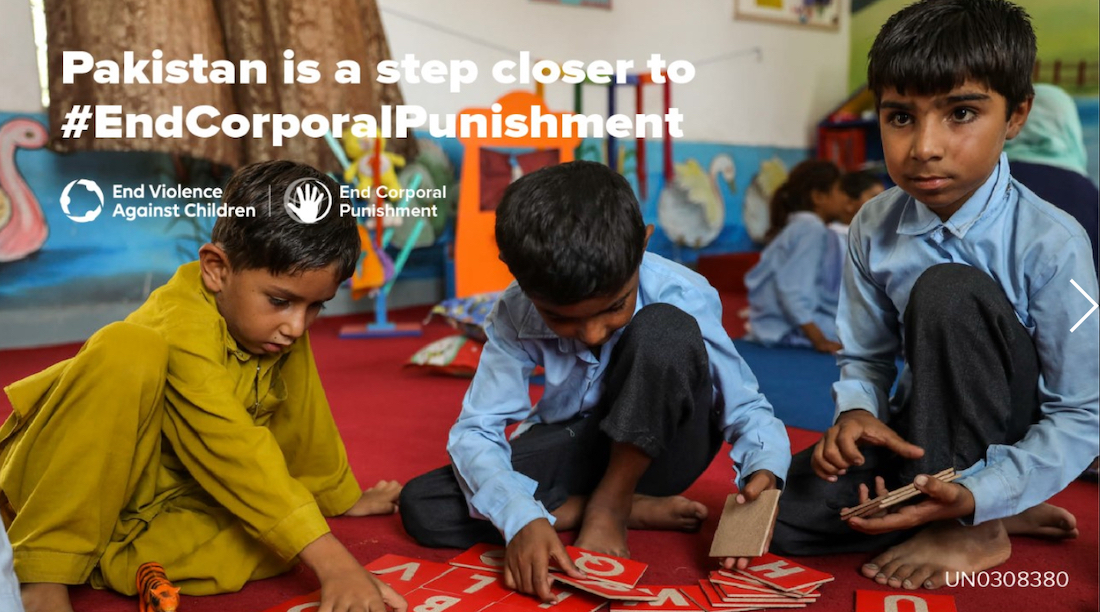
In a landmark development for children’s safety in Pakistan, a new law banning corporal punishment came into force across the country’s capital. The ‘Islamabad Capital Territory (ICT) Prohibition of Corporal Punishment Bill’ bans all forms of corporal punishment in formal and informal educational institutions, seminaries, childcare institutions and juvenile rehabilitation centres.
The bill imposes penalties on educators, caregivers or other perpetrators exercising any form of physical punishment and reverses an earlier provision of the penal code which allowed teachers and guardians to administer such punishment “in good faith” or “for the benefit” of the child. This marks an important step towards protecting children from violence, changing attitudes towards corporal punishment, and better ensuring children’s dignity and rights.
A step towards universal prohibition
All children have the right to learn and grow without violence. Educational, rehabilitation and child care settings are critical for a child’s development, and corporal punishment limits and threatens this development. Studies from across countries and settings have consistently revealed the many negative effects of corporal punishment – it violates rights, impedes learning, harms physical health and mental well-being, and is a catalyst for aggression and depression among children.
The prohibition in Islamabad is an important step to curb the practice and ensure that children are protected from violence and its immediate and long-term effects. With this ban covering education, juvenile justice, and care institutions, further efforts must ensure that the ban is expanded to all settings.
And with the current prohibition enacted in the capital, the hope is that the rest of the country will follow suit through nation-wide efforts to curb the practice. Across the world, 63 countries have full prohibition of corporal punishment, but that’s only 14 percent of the world’s children. One in three children are still not protected by law. Legislative action is needed to ensure safer environments for children - so they are safe from all forms of physical punishment in schools, at home and in their communities.
Learn more about ending corporal punishment across the world and explore our policy call to end all forms of violence against children.